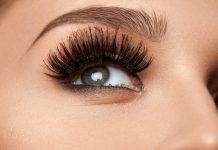Maybe stress or a lack of vitamins is to blame. Or maybe you are seriously ill. Hair loss is normal. Every day each of us (of course, excluding bald ones) loses from 50 to 100 hairs. This is a pretty impressive bunch, but it shouldn't be alarming.
It's another matter when on your comb every time there is a clump of frightening size, or, even worse, bald patches appear on your head. It is important to figure out where this came from. We have collected the most common reasons.
You lack protein
Dietary protein deficiencies cause the hair to become thin and brittle, slow down its growth, and begin to fall out. You must consume at least 1.2 g of protein per kilogram of weight per day with a sedentary lifestyle. If you play sports, this value rises to 1.6-2 g.
What to do
Review your eating habits and, if necessary, add lean meat, dairy products, and other protein foods to your diet.
Read also: How to Grow Hair: 5 Simple Tips That Will Definitely Help
Your body is low on iron
Iron deficiency occurs often. It has a host of symptoms, including unmotivated fatigue, lethargy, brittle nails, and hair loss. You are definitely at risk if you are fond of vegetarianism or limit the amount of meat in your diet.
What to do
If you observe at least a couple of signs of iron deficiency anemia, contact your therapist and take a blood test. Depending on the study results, the specialist will advise you to adjust the diet by adding iron-containing foods to it or prescribing the necessary medications.
You have an imbalance of vitamins
Disadvantage vitamins B and D or an excess of vitamins A and E can lead to certain body changes. One of the symptoms of this is severe hair loss.
What to do
As in the previous case, the best solution is to visit a therapist. He will prescribe tests that will help determine the lack or excess of vital vitamins in your body and then prescribe the necessary vitamin supplements or advise on adjusting the diet.

You are stressed
Finding out the chef's relationship or a small scandal in the minibus will definitely not make your hair actively fall out. In this case, we are talking about chronic psychological overstrain.
Maybe you are experiencing the loss or illness of a loved one. Maybe a family member, coworker, or boss puts pressure on you every day. Unfortunately, there are plenty of options, and in any case, chronic stress does not lead to anything good and hair loss is one of them
What to do
The experts of the famous American Mayo Clinic experts assure that it is enough to get rid of stress for the hair to return to normal. Find ways to reduce your emotional distress. Fortunately, there are many. If you cannot cope on your own, see a psychotherapist.
You have experienced a serious physical shock
A fracture, surgery, a car accident, and sometimes even the severe flu can backfire with hair loss. Physical stress makes bulbs go into the phase of loss. Typically, this effect becomes noticeable 3–6 months after the injury.
What to do
Wait and hair will be restored at the same time as the body.
Also read: 5 Best Haircuts for Women with a Round Face
You've lost too much weight
The abrupt loss of weight is viewed by physiologists as a type of serious physical shock. And if a severe diet led to a decrease in body weight, then, most likely, your body also received fewer vitamins and nutrients, with the corresponding consequences for the hair.
Hair loss and noticeable weight loss can sign an eating disorder such as bulimia or anorexia.
What to do
Normalize the diet, or (if losing weight has become a pleasant consequence of a healthy lifestyle) wait a while for the body to get used to the new weight.
You recently became a mom
Hair loss in women in labor is widespread. During pregnancy, the body has increased estrogen levels, which, among other things, has one curious feature; it accelerates hair growth and makes the hairs stick tightly in the hair follicles. For this reason, expectant mothers often have luxurious hair can even take for advertising.
However, estrogen levels drop after childbirth. A freshly baked mom begins to lose not only the usual number of hairs and those that should have fallen out during pregnancy.
What to do
Just wait. Hair loss usually begins a month after giving birth and ends in 4–5 months. When your baby is six months old, you will have normal hair again.
Your hormones are changing
Pregnancy and childbirth are a special case of such a change. Also, menopause, age over 50, polycystic ovary syndrome, and even a banal refusal of birth control pills are often lead to hair loss due to a sharp drop in the level of female hormone receptors on the scalp. They cause the hair follicles to shrink, the life of the hair is shortened, and the hair is thinning.
What to do
The problem is solved by normalizing hormonal levels. Talk to your therapist about this.
You have problems with the thyroid gland
If the glands produce too much (which is called hyperthyroidism) or too little (hypothyroidism) hormones, it affects the hair follicles' condition. Their life cycle is shortening, and they begin to drop out more actively than ever. This usually occurs several months after the onset of the disease.
Also, some thyroid medications can cause increased hair loss.
What to do
Treat the underlying disease. To do this, contact your therapist or endocrinologist. Doctors will give you a series of blood tests that will show you what is happening to your thyroid gland and improve the condition. Please note: solving the problem may even require surgery.
You are taking certain medications
In addition to thyroid drugs, hair loss is frequently caused by blood pressure medications, several antidepressants, and even ibuprofen.
What to do
Carefully read the instructions for the medication that you started taking shortly before the hair problem began. If losing hair is one of the side effects, see your doctor. Perhaps he will find an alternative.
You are a man
Hair loss affects two out of three men over the age of 60. But for some, this unpleasant process affects much earlier.
It's a combination of genes and male sex hormones that is to blame. Most often, it looks like this; the first to form bald patches above the temples; the hairline begins to resemble the letter M. Further, the process progresses, affecting the area above the forehead and crown.
What to do
Some creams and pills help, if not restore hair, then significantly slow down hair loss. Discuss this with your doctor or dermatologist.
Adapted and translated by The Cop Cart Staff
Sources: Life hacker







